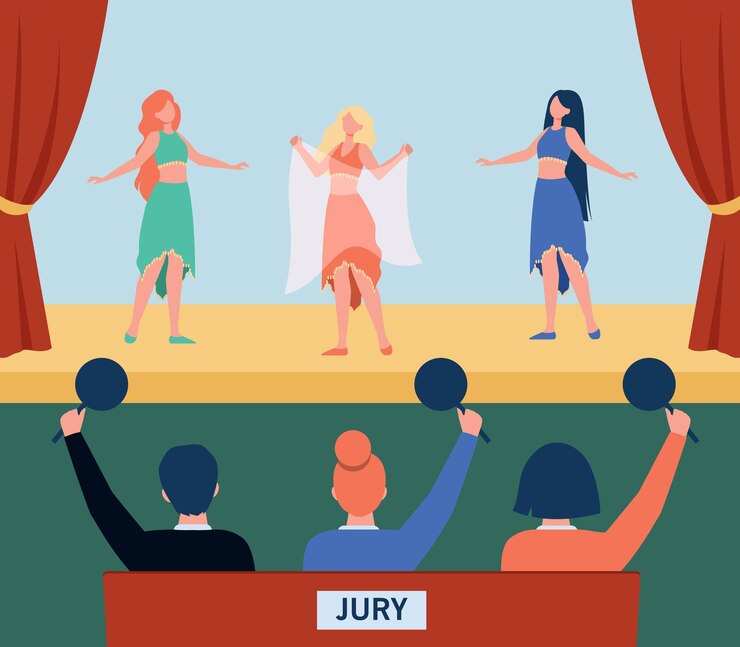Time is a precious resource gertart that we all have in limited supply. In today’s fast-paced world, it’s more important than ever to manage our time effectively. Effective time management allows us to make the most of our day, accomplish our goals, and reduce stress. It’s a skill that can have a significant impact on our personal and professional lives.
When we have a clear plan and prioritize our tasks, we can accomplish more in less time. We become more efficient and focused, eliminating distractions and making better use of our energy. This increased productivity not only allows us to achieve our goals but also creates a sense of accomplishment and satisfaction.
Another important aspect of effective time management is better work-life balance. When we manage our time effectively, we can allocate time for work, family, hobbies, and self-care. We avoid the trap of constantly feeling overwhelmed and never having enough time for the things that matter most to us. By setting boundaries and prioritizing our time, we can create a healthier and more fulfilling life.
Understanding the Psychology of Productivity
To truly master the art of getting things done, it’s important to understand the psychology behind productivity. Our mindset and beliefs play a significant role in our ability to stay focused and motivated. One of the key psychological factors is having a growth mindset. This means believing that our abilities and intelligence can be developed through hard work and dedication. With a growth mindset, we are more likely to embrace challenges, persist in the face of setbacks, and ultimately achieve our goals.
Another important psychological factor is the power of visualization. When we visualize ourselves successfully completing a task or achieving a goal, it increases our motivation and confidence. Visualization helps us envision the steps we need to take and the potential obstacles we may face along the way. By mentally rehearsing the desired outcome, we can increase our chances of success.
Furthermore, understanding the concept of intrinsic motivation is crucial. Intrinsic motivation comes from within and is driven by a genuine interest and enjoyment of the task at hand. When we find meaning and purpose in our work, we are more likely to stay engaged and motivated. By aligning our tasks with our values and passions, we can tap into this intrinsic motivation and boost our productivity.
Strategies for Setting and Achieving Goals
Setting goals is a fundamental step in the process of getting things done. However, it’s not just about setting any goals, but setting SMART goals. SMART stands for specific, measurable, achievable, relevant, and time-bound. When we set SMART goals, we provide ourselves with clear direction, focus, and motivation.
To effectively set and achieve our goals, it’s important to break them down into smaller, manageable tasks. This helps us avoid feeling overwhelmed and allows us to make steady progress. This sense of clarity and structure makes it easier to take action and stay on track.
Accountability is another powerful strategy for achieving our goals. By sharing our goals with someone else or joining a supportive community, we create a sense of responsibility and external motivation. When we have someone to report to and cheer us on, we are more likely to follow through on our commitments and stay accountable.
Overcoming Procrastination and Staying Motivated
Procrastination is a common obstacle that many of us face when trying to get things done. It’s the act of delaying or avoiding tasks that we know we should be doing. To overcome procrastination, it’s important to understand its underlying causes. Fear of failure, perfectionism, and lack of motivation are often at the root of procrastination.
One effective strategy for overcoming procrastination is breaking tasks into smaller, more manageable parts. By taking small steps and focusing on one aspect of the task at a time, we can reduce overwhelm and make progress. Celebrating small wins along the way also helps to maintain motivation and momentum.
Another useful technique is the Pomodoro Technique. This involves breaking work into 25-minute intervals, called “pomodoros,” with short breaks in between. By working in concentrated bursts and giving ourselves regular breaks, we can maximize our focus and productivity. This technique helps us avoid burnout and maintain a sense of freshness and energy throughout the day.
Effective Task Prioritization Techniques
When faced with a long to-do list, it can be challenging to determine which tasks to tackle first. Effective task prioritization is essential for maximizing productivity and achieving our goals. One popular technique for prioritizing tasks is the Eisenhower Matrix.
The Eisenhower Matrix categorizes tasks into four quadrants: urgent and important, important but not urgent, urgent but not important, and not urgent or important. By identifying which tasks are most important and time-sensitive, we can prioritize our efforts accordingly. This allows us to focus on high-value activities and avoid wasting time on low-priority tasks.

Tools and Technologies for Improving Productivity
In today’s digital age, there are numerous tools and technologies available to help us boost our productivity. From task management apps to time-tracking software, these tools can streamline our workflows and keep us organized. Here are some popular tools that can enhance our productivity:
- Trello: Trello is a visual project management tool that allows us to create boards, lists, and cards to track tasks and progress. It’s a great tool for collaboration and staying organized.
- Evernote: Evernote is a note-taking app that allows us to capture ideas, create to-do lists, and store important information.
- RescueTime: RescueTime is a time-tracking tool that helps us understand how we spend our time on digital devices. It provides insights into our productivity habits and allows us to set goals for better time management.
- Focus@Will: Focus@Will is a music streaming service that offers scientifically curated playlists to enhance focus and concentration. It provides a distraction-free environment for deep work.
By leveraging these tools and technologies, we can optimize our productivity and make the most of our time.
Developing Effective Habits for Getting Things Done
Ultimately, the key to mastering the art of getting things done lies in developing effective habits. Habits are automatic behaviors that we perform without conscious thought. By cultivating positive habits, we can make productivity a natural part of our daily routine.
- Daily Planning: Start each day by planning your tasks and priorities. This allows you to set a clear direction and avoid wasting time on unimportant activities.
- Time Blocking: Allocate specific time blocks for different tasks or activities. By dedicating uninterrupted time to specific tasks, you can maximize focus and productivity.
- Regular Breaks: Take regular breaks throughout the day to recharge and rejuvenate. Stepping away from work for short periods can actually improve productivity and prevent burnout.
- Review and Reflect: At the end of each day or week, take time to review your progress and reflect on what worked well and what could be improved. This self-reflection helps you learn from your experiences and make adjustments for greater effectiveness.
Remember, developing new habits takes time and effort. Be patient with yourself and celebrate small wins along the way. With persistence and consistency, you can cultivate habits that support your productivity and help you achieve your goals.
Conclusion
It requires a combination of effective time management, understanding the psychology of productivity, goal setting, overcoming procrastination, task prioritization, leveraging tools and technologies, and developing positive habits. By implementing the strategies outlined in this comprehensive guide, you can take control of your time, increase your productivity, and achieve your goals. So, start today and unlock your full potential!














+ There are no comments
Add yours